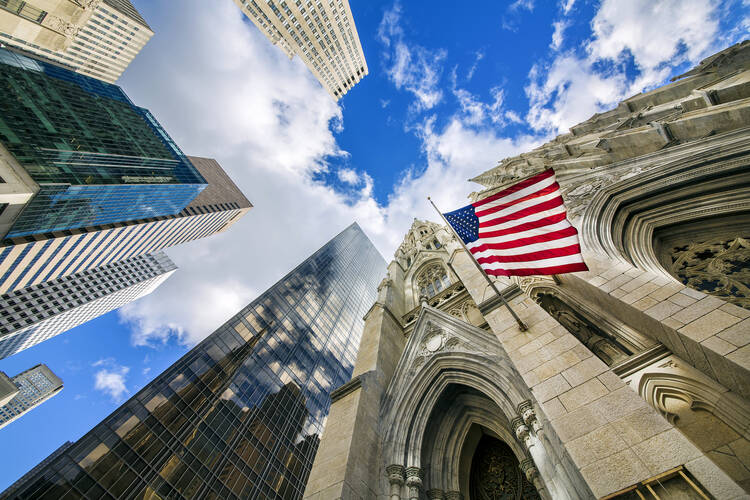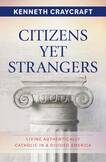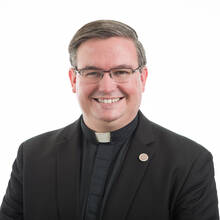Review: Are we all liberal protestants?
Any argument about the political and ecclesial divisions of U.S. Catholics has a special burden: to make its account plausible, if not persuasive, across the divides it seeks to describe. This is no small thing. It is a sign of the virtue of Citizens Yet Strangers that it can draw reader and author alike into a conversation about the past, present and future of Catholicism in the United States.
Kenneth Craycraft’s thesis is simple: American political order presupposes the goodness of the Fall, rather than our original created goodness. In this sense we are “liberal Protestants,” treating our exile from Eden as simply normative—the state of nature, if you will. And yet Craycraft recognizes the goodness of creation and the goodness of the American political order. He thus refuses to cooperate in either a one-sided reading or the rejection of “Gaudium et Spes.”
One of Craycraft’s central points is that the challenges of living as “authentically Catholic,” to borrow from the book’s subtitle, do not only or even primarily arise from our citizenship in a “divided America.” The human condition—created good, fallen but redeemed—preceded and will no doubt outlast the American regime. We have become antagonistic toward God and toward our fellow humans when we should really be friends.
Craycraft is aware that the response to these problems of politics, whether specific to the United States or general to the human condition, is practical as well as theoretical, a concern that his chapter on Christian citizenship as friendship addresses in a number of ways. It includes a wonderful interlude on voting, where he reminds us that in the final analysis, “the Christian vocation is not to effect social change, as Pope Benedict reminds us, but rather to witness to the truth of the Gospel.”
Craycraft also gives admirable life to the “four pillars” of Catholic social teaching. Presenting it as a set of lists or bullet points can blunt its edges and drain the life out of it, but in Craycraft’s pen we see how they illuminate and are illuminated by some of the fundamental truths about humans and their life in common. He offers systematicity without a constraining system.
In addition to all of this, Craycraft manages to speak to a broad audience, deploying his considerable knowledge for the benefit of anyone of good will. On that note, given the importance that Craycraft gives to liberal Protestantism as capturing the contemporary American political imagination, it would have been interesting to see him engage the many brilliant young Protestant thinkers in the United States who are thinking through and beyond the spirit of Rauschenbusch or Bultmann.
Perhaps the greatest gift of the book is Craycraft’s ability to draw out the political implications of an old conventional wisdom about U.S. Catholics: that we have a deep longing to fit into American society. Rejected by that society for so long, we struggle to recognize the tradeoffs of our integration into U.S. culture. But that is a necessary task if we are to be salt and light for our homeland, and indeed for the world.
Craycraft also relies upon the Jesuit priest and scholar John Courtney Murray to draw out the place of the United States in Catholic political thought. The American experiment, and particularly the religion clauses of the First Amendment, offers for the Catholic Church a vision of pluralism that, while not in keeping with the European experience, nonetheless seems to be a fruitful way forward for the church, as Pope Leo XIII himself noted in his 1895 encyclical “Longinqua.” And yet the challenge of such a pluralistic political order, to continually form consensus and agreement, puts tremendous pressure on the life of the faithful, and particularly the ascetic-like effort to maintain one’s faith as the rule for one’s politics, rather than allowing one’s politics to shape one’s faith.
My main criticism of the book is a minor one. One cannot cite everyone, but in a book on this topic it is to be regretted that Pope Francis is mentioned only twice, with two references to “Fratelli Tutti.” The citations include some of the most important names in this tradition, including popes Paul VI, John Paul II and Benedict XVI and brilliant scholars like Alasdair MacIntyre, Brian Benestad and Russell Hittinger. But the works that are not cited only sadly underline the intra-Catholic divisions that Craycraft seeks to overturn in other parts of the book.
The cure to our political problems is ultimately not in the constitutional or political order, although Craycraft is not calling for political quietism. We are waiting not for a Madison, but for another —doubtless very different—Archbishop Ireland.
This article also appeared in print, under the headline “Are We All Liberal Protestants?,” in the November 2024, issue.











